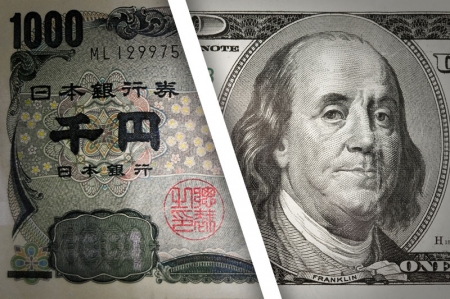
Investing.com– The Japanese yen steadied near its weakest levels in 38 years on Thursday, with the currency’s latest decline and low liquidity during a U.S. market holiday sparking fresh speculation over government intervention.
The yen’s USDJPY pair, which gauges the number of yen needed to buy one dollar, fell 0.1% to 161.50 by 20:04 ET (00:04 GMT). The pair had risen as far as 161.99 on Wednesday, before falling on some weakness in the dollar.
But the pair remained close to its highest level since 1986, as signs of weakness in the Japanese economy and waning expectations of more monetary tightening by the Bank of Japan kept traders largely short on the yen.
Intervention in focus as amid persistent warnings from authorities
The USDJPY pair was trading well above 160- the level that had last spurred intervention by Japanese authorities in May.
Government officials had kept up their verbal warnings over potentially intervening in markets to stem the yen’s decline. But they did not specify at what levels, or by what margin they would intervene.
Traders speculated that low liquidity conditions during the July 4 U.S. independence day holiday could set the stage for government intervention, given that the lower volumes will reduce the cost of defending the currency.
The last time the government intervened- in early May- was during a Japanese market holiday, when trading volumes in currency markets were low.
Still, intervention is expected to only temporarily halt the yen’s decline. High U.S. interest rates and staggered monetary tightening by the BOJ are the two biggest factors behind the yen’s slump, and are expected to keep weighing on the currency in the near-term.
Recent signs of weakness in the Japanese economy- after first-quarter gross domestic product data was revised substantially lower- sparked doubts over just how much headroom the BOJ has to tighten policy. Japanese inflation also turned sluggish in recent months.
This post is originally published on INVESTING.




